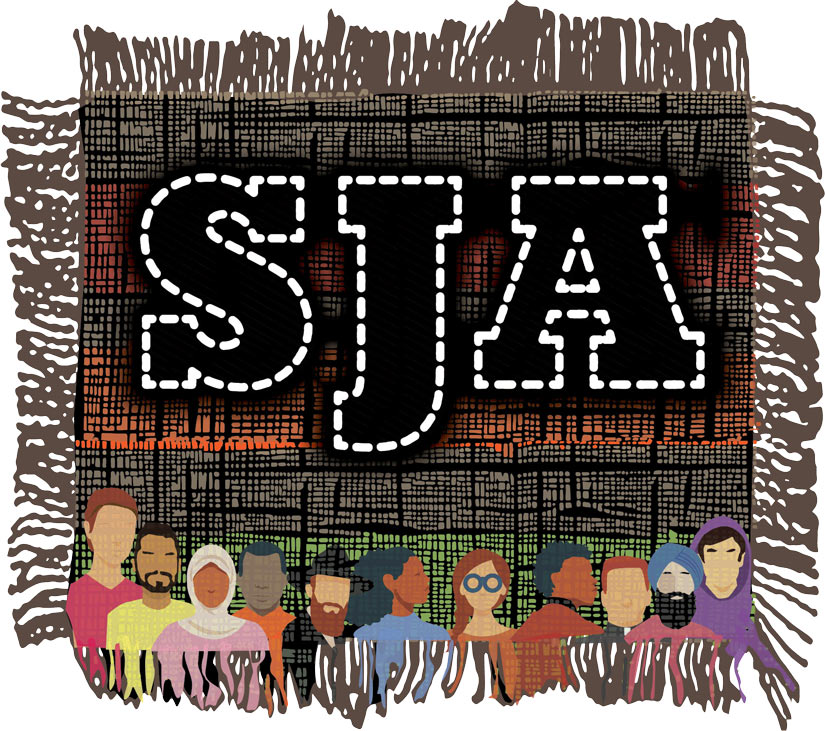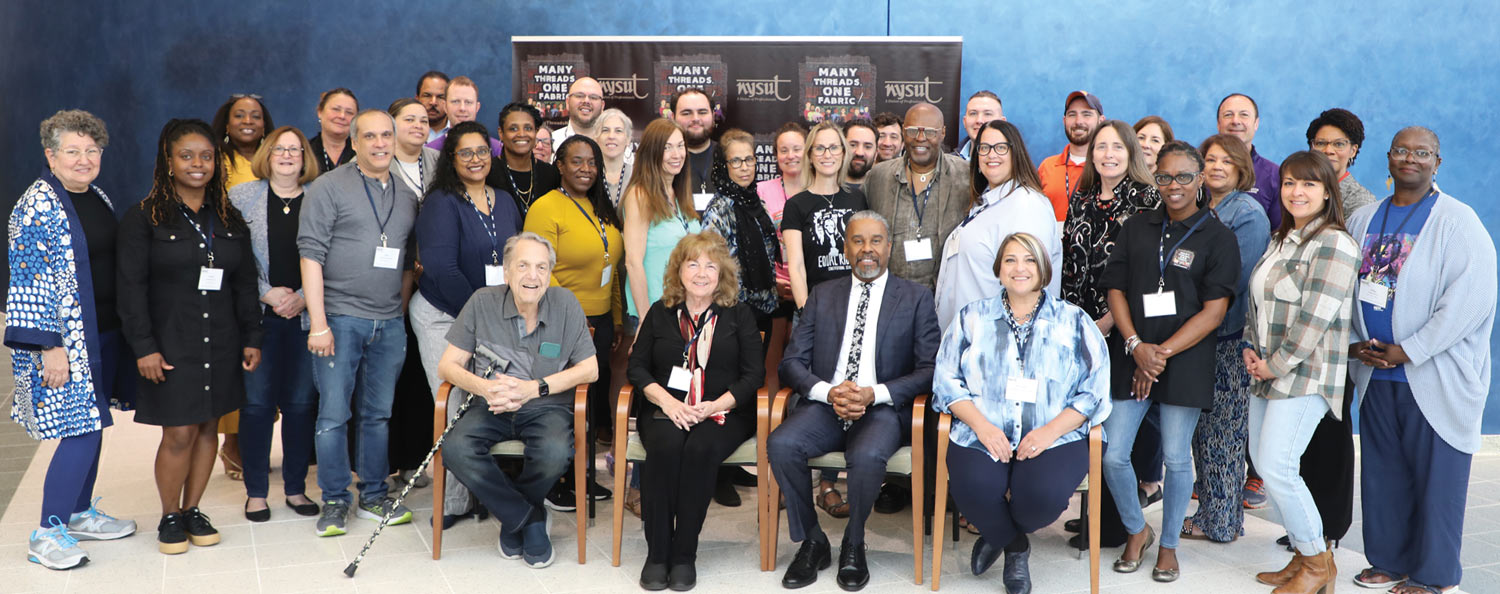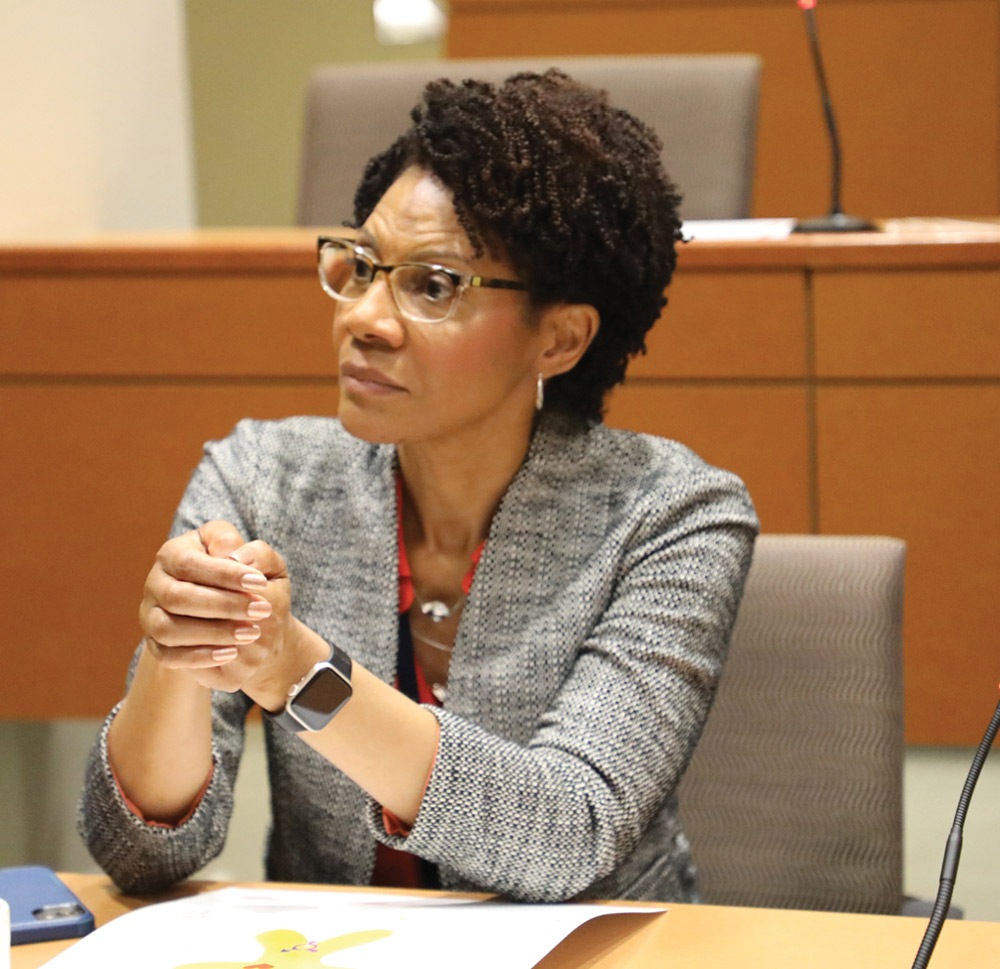
Exploring mental health through an equity lens
ne size doesn’t fit all when it comes to the mental health needs of individuals of color and members of the LGBTQ+ community. They can often face unique mental health challenges and may be hesitant to seek out care. That’s why it’s important to consider an individual’s background when offering assistance.
Discussing these differences and teaching educators how to better help underrepresented students was the focus of “Promoting Health and Well-Being Through an Equity Lens: Cultivating Cultures of Care and Strategies to Support Mental Health.”
“To achieve wellness, we must be open to discussing our feelings and examining them through the unique lens of our personal life experiences,” said J. Philippe Abraham, NYSUT secretary-treasurer, who hosted the Many Threads, One Fabric event. “A conversation about the health and wellness of individuals in underrepresented communities is timely.”
The event featured three mental health professionals who discussed how educators can recognize problems and help underrepresented students cope: Joyce Dewitt-Parker, Ph.D., assistant vice president of health and well-being for the State University at Albany; Robert Cardom, Ph.D., director and licensed psychologist at Skidmore College; and Leven “Chuck” Wilson, MSW, the American Federation of Teachers’ assistant director of health and safety.
Being culturally humble — listening and not just making assumptions about what people need — is important said Dewitt-Parker. “Students need to be a part of the process when developing services for them,” she said, noting that looking at what’s creating mental health concerns is also key.
Race-based trauma stems from three main sources: direct stressors such as being targeted; vicarious stressors such as witnessing a race-based incident; or transmitted stressors, such as trauma passed on from generation to generation, Dewitt-Parker explained.
For LGBTQ+ students, feeling safe and welcomed is a big concern, said Cardom, noting that educators strive to make their classrooms inclusive learning environments to support all students. This includes becoming familiar with the different terms LGBTQ+ students use to describe their gender identity and looking for underlying causes when students experience problems.
“Maybe something is happening in the classroom that makes the room feel unsafe and they can’t learn there,” said Cardom. “When you’re working with LGBTQ+ students you can’t always take things at face value — you need to find out if there’s an underlying cause.”
Wilson also advocates digging deeper when exploring issues of mental health. “They’re caused by something, and we have to deal with the concerns at the root of the problem,” he said, noting that talking is important since stressors within our lives often correlate to the status of our mental health. “To adjust your mental health, you must understand the process of being well.”
Abraham noted that the statewide union’s Peer Support Line, available free of cost through a partnership between the office of NYSUT Second Vice President Ron Gross, NYSUT Member Benefits and Rutgers University, is one tool that all members can use to engage in self-care and strive toward better mental health. “Often people of color and other underrepresented groups tend to suffer in silence, but there’s no need to,” Abraham said. “I encourage members in need of support to reach out.”
To learn more about NYSUT’s Many Threads, One Fabric initiative, visit nysut.org/ManyThreads. Access the free Peer Support Line at 844-444-0152 or nysut.org/PeerSupport.

PHOTOS: ANDREW WATSON
NYSUT members join community mental health professionals at an April Many Threads, One Fabric event.

Joyce DeWitt-Parker says students should be part of the process of developing services to meet their mental health needs.